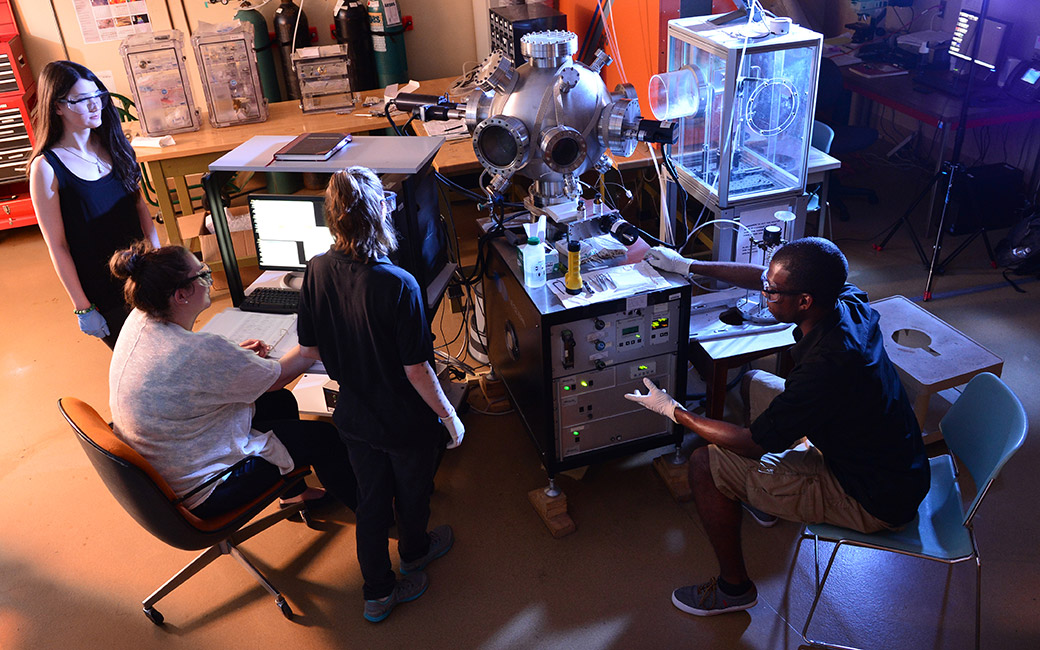Career Resources
Discover career opportunities with a physics degree from Towson University. Develop analytical skills for roles in research, engineering and technology.
Studying physics challenges the imagination and yields big discoveries that shape our comprehension of the world around and beyond us.

The physics major offers flexible options to prepare you for graduate study in fields such as physics, astrophysics, medicine and engineering. Or you may choose to go straight into professional practice as a teacher or physicist in industrial, governmental or institutional settings.
Undergraduate physics majors can choose from the following concentrations: general physics, applied physics, astrophysics and physics secondary education. Individualized programs emphasize optics, elementary particle physics, solid state physics, nanotechnology, electronics and nuclear physics.
The general physics concentration provides a broad base in physics with opportunities for in-depth study in a variety of specialized subjects. This concentration is recommended if you intend to pursue graduate school in physics.
The applied and engineering physics concentration combines a thorough but flexible training in physics. You may develop a program emphasizing study in optics, astrophysics, or solid state physics. This concentration is recommended if you plan to pursue fundamental or applied research and development in industrial or government laboratories.
The astrophysics concentration offers a strong, hands-on foundation in modern astronomical research. This concentration is recommended if you’re interested in working as a researcher or educator in an observatory, planetarium or laboratory.
If teaching is your dream, consider the physics secondary education concentration, which prepares secondary-level educators through the innovative Towson UTeach program.
The Engineering Dual Degree track is only for students who wish to pursue the dual degree program in engineering. In this program students obtain a physics degree from Towson University and an engineering degree from another university.
You can view degree requirements for the physics major and specific concentrations, and course descriptions, in the Undergraduate Catalog. You can view the suggested and possible electives for each concentration by going to Physics Electives.
The Department of Physics, Astronomy and Geosciences offers an accelerated bachelor’s to master’s program. Accelerated programs allow you to begin your graduate education as an undergraduate, offering you the opportunity to save time and money while you advance your academic career. The combined B.S. in Physics/M.S. in Applied Physics enables students to substitute nine credits in the Applied Physics program for undergraduate classes in the Physics major.